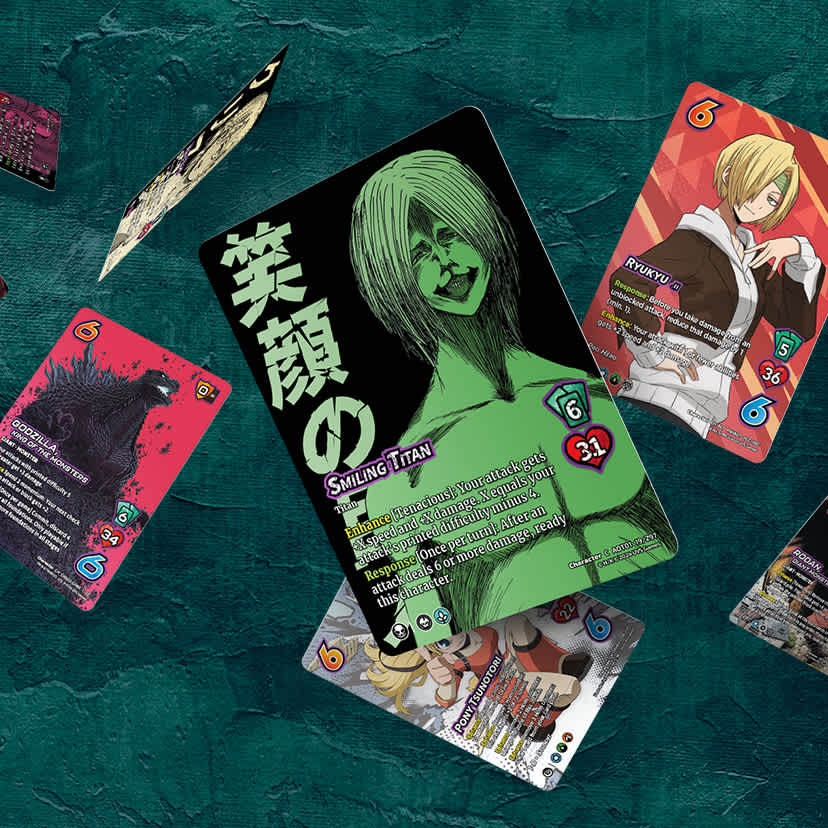

Designing UniVersus: The "Challenge" with B&E
Bill Stark
Earlier this week we announced some updates to our Banned and Errata list. One particular change we announced is worth a deeper dive, and I want to provide some insight into our thought process, along with what you can expect moving forward.
Banning Versus Errata'ing
Historically, when we choose to take corrective action on a card, we have done so dependent on the card’s type. For non-character cards we use bannings when they become too powerful. For character cards we have taken the path of using errata, or updating wording on the cards to balance their power level, but leaving them eligible for play. The reason we’ve made this distinction is because for many fans of a world that we visit, a particular character may be the most compelling part of the game for them, and losing access to that character may drive them from playing. This is less true for non-character cards.
While errata is a clunkier solution for power balancing because it requires tracking data not represented on the card, we’ve chosen this path for character cards and plan to continue doing so in the future. Over the past few years, however, one of our new product lines has made our approach of only banning non-character cards a little bit more “challenging…”
A New Challenger Emerges
The adoption of Nott’s Flask from the Critical Role Challenger Series decks proved to be powerful enough for us to need to take power-balancing action on that card. At the time we chose to use errata, with our reasoning being that "because the card was a part of a Challenger Series deck, and because Challenger decks are preconstructed decks you can play out of the box, banning a particular card could lead to a feel bad for newer players." They’re likely to be excited to try out their new deck, so to be told they have to replace a card—or worse, face a tournament penalty—is a bad first experience with UniVersus. We chose errata for Nott's Flask as a one-off solution.
Since that time, a second Challenger deck card has proven itself worthy of action: Combined Firepower, as Jeremy announced Tuesday. With two instances of needing to adjust Challenger cards, we made a decision as a Game Design team: we would utilize errata for Challenger Series cards instead of banning them outright, to ensure the deck integrity remains for players purchasing the deck to play.
This wasn’t the only option we considered: we looked at banning the card outright, but again felt this was a significant “feels bad” for players excited about the Challenger deck experience we’ve built for them. Another consideration was banning cards, but allowing them to be played only if they were in the original Challenger deck construction with no changes. We felt this was a bit cumbersome, though it was a close second option. In the end, using errata in this new fashion was the decision we felt was best for the long-term health of UniVersus.
Closing Thoughts
Banning and errata on cards are key parts of power balancing that allow us to push the boundaries on playability in design. A UniVersus world where there were no corrective actions necessary would be boring, and a sign we aren’t pushing up against the known constraints of what’s possible in play. We’ll continue using the “ban cards, errata characters” rubric as our default choice moving forward, with the added caveat that “errata” is the preferred option for Challenger Series cards.
What do you think? Make sure to join the conversation and share your thoughts on all of our social media channels!
